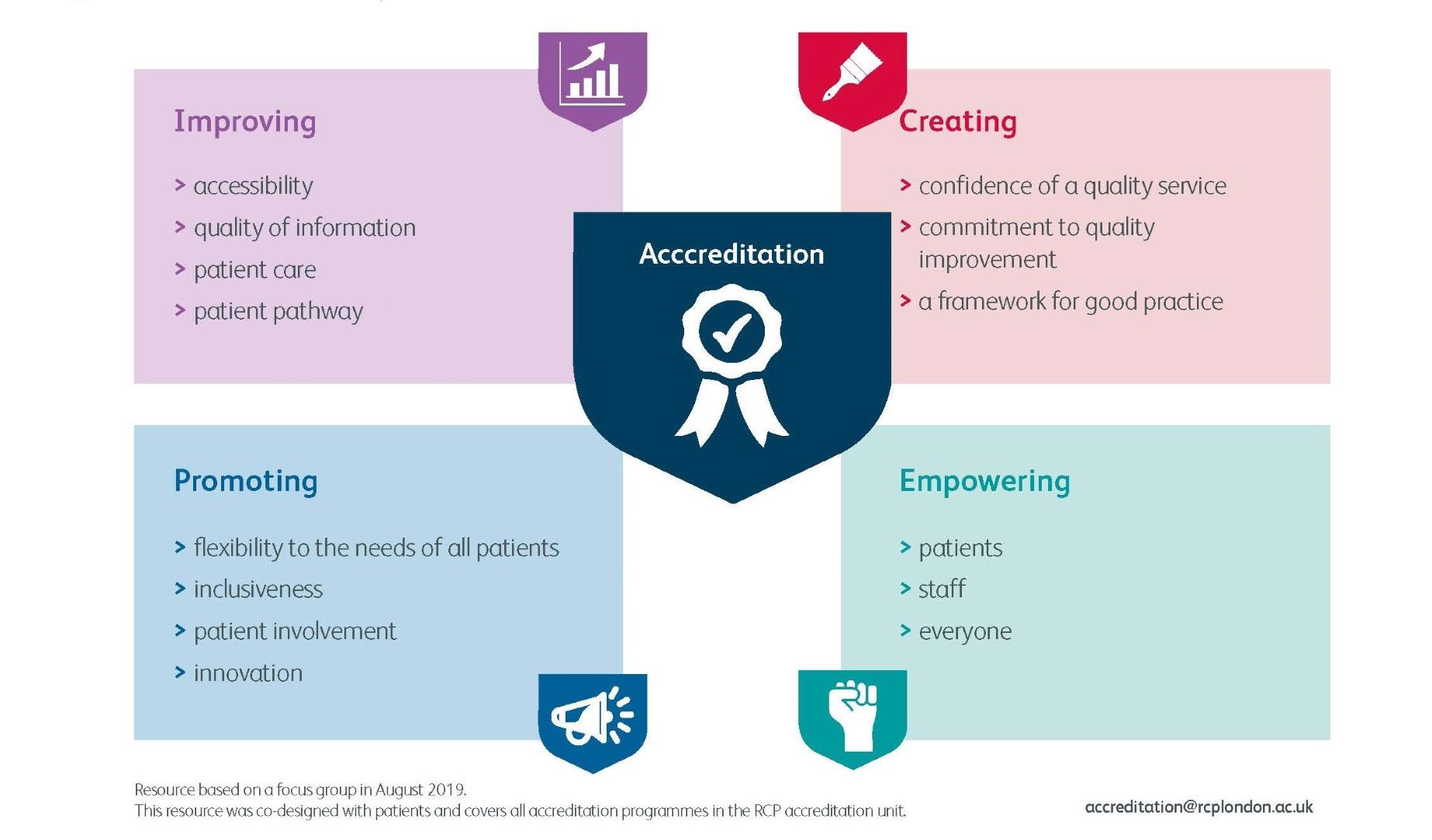Information for patients
What does QPIDS accreditation mean?
QPIDS stands for quality in primary immunodeficiency services. QPIDS is an accreditation programme for primary immunodeficiency (PID) services across the UK and Ireland.
QPIDS accreditation means that you can have increased confidence in your PID service and be assured of the same quality of care no matter where your service is in the country, provided it is accredited. For the service, it means a sense of pride in being able to show that they offer a high quality and safe service. It also increases opportunities for investment, growth and development of services.
The graphic below outlines how accreditation helps improve, create, promote and empower services providing care for patients.

Why is QPIDS important?
QPIDS is important because it supports hospitals to improve the quality of their PID services and drive up standards of care for people with these conditions across the UK.
How does QPIDS work?
PID services across the UK and Ireland register to work towards QPIDS accreditation. There is an annual subscription fee and services gain access to training days, support and best practice material to help improve their service.
To be accredited, services must demonstrate that they meet high standards of care. The standards have been developed with patients and clinicians to ensure that accredited PID services are truly meeting patients' needs.
What will QPIDS mean for me?
If your PID service is accredited it means that your hospital meets the rigorous standards set and has demonstrated that it is delivering high quality care. This accreditation is not a one-off badge; your service must be assessed by the independent QPIDS assessment team and its processes scrutinised closely. For the next 5 years this will take the form of a remote assessment and then in year five, a full assessment on site takes place again.
If your PID service is working towards accreditation, it means that there is a commitment form them to provide a high level of service.
If your service is not yet signed up to the QPIDS programme, do ask them about this and whether they intend to register. The patient voice is critical in helping to raise standards of care.
How will QPIDS improve services?
A PID service that is accredited has met certain standards, which have been agreed with clinicians, managers and patients. The standards include factors such as ensuring patients are involved in decision-making about their care, monitoring of clinical performance and carrying out audits to benchmark and improve, providing training and support to the staff working in the service and learning from incidents to prevent harm.
Ultimately the goal of QPIDS accreditation is to improve your safety and the quality of care that you receive.
How will I know if my local service is involved in accreditation?
The full list of services accredited or working towards accreditation is on our website here.
How can I get involved?
Most services will have a patient group which provide opportunities for patients to get involved in the development of the service. Your service may also have volunteering opportunities. If your PID service is working towards accreditation, we know that they will want to hear from you! If your service doesn't have a patient group already set up, perhaps you could even consider setting one up.
If your PID service is not working towards accreditation, ask your consultant or member of the team why they are not yet involved. If you think it is important that they are, you should make this known as your voice is crucial in helping to raise awareness of accreditation as a means of improving care.
You can also get in touch with your local and national patient organisations.
What does not being QPIDS accredited mean?
Not having QPIDS accreditation does not mean that the service is of a poor quality or is unsafe. Some services have to work hard with QPIDS to secure the funding and support they need to meet the required standards for accreditation. We make a clear distinction between services that are engaged in the process (ie registered and aiming to work towards accreditation) and those that are not. Some services meet the QPIDS standards in many ways but are unable to get accreditation as they are unable to meet certain aspects of the standards which may need a large amount of investment.
If I have a concern about a QPIDS accredited service, what should I do?
The first thing you should do is take up your concern with the PID service itself. Each organisation will have a complaints policy which will detail how you can raise concerns and who to escalate your concerns to if you are not satisfied with the response from the organisation. Some services may also have a Patient Advice and Liaison Service (PALS) and they can often help you with your concerns. QPIDS does not typically investigate individual patient complaints.